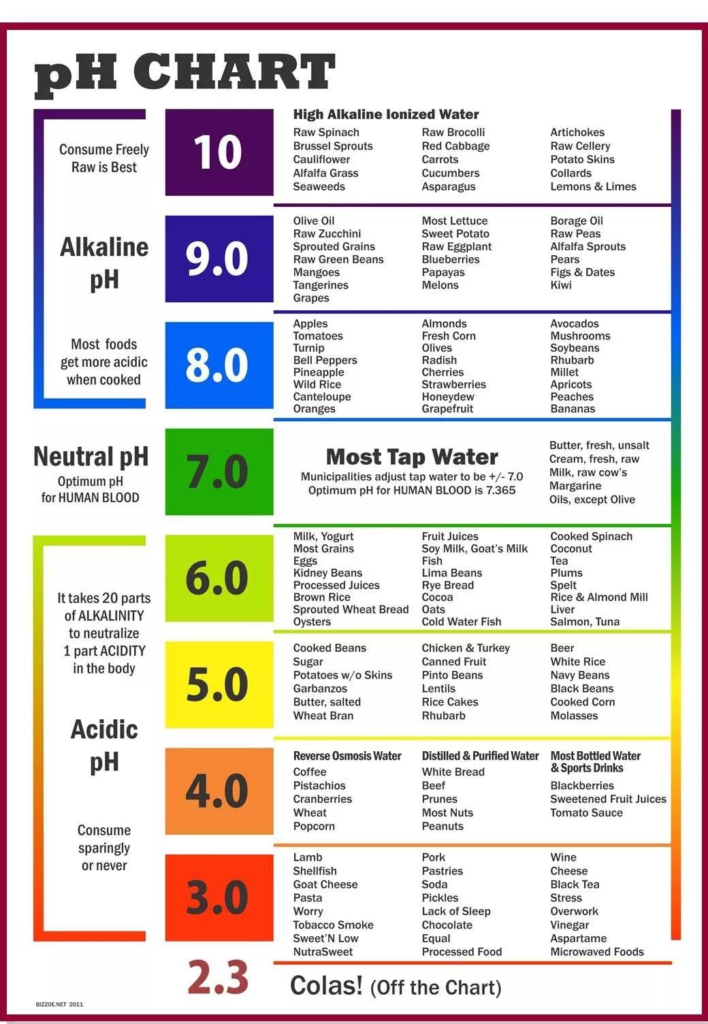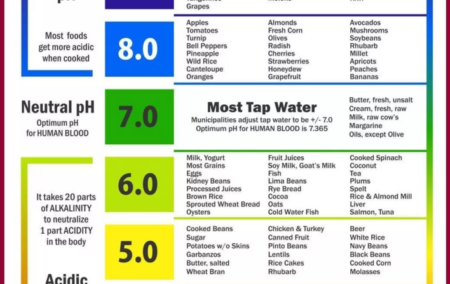Modern snake-oil sellers have a sciency-sounding shtick about them, but ‘alkaline’ or ‘ionised’ water is a swindle.
Adverts for a fancy water brand called Designer Water are all over Facebook. My local gym sells it. The ads circulate on WhatsApp groups. There is a multi-level marketing scheme for it, à la Herbalife, Avon, Amway, and Tupperware.
Its differentiator is that it is ‘ionised’ to be ‘alkaline’, with a claimed pH of 10. For this, you can expect to pay two to three times as much as you’d pay for regular filtered water in a bottle.
‘You’re not sick. You’re thirsty,’ reads the vinyl sticker on the car door of one ‘waterpreneur’, suggesting that water cures all ills.
The adverts – like all alternative health quackery – claim the same. Designer Water is, they claim, good for Alzheimer’s, Parkinson’s, premature aging, cancer, morning sickness, depression, osteoporosis, heartburn, headaches, hangovers, weight loss, constipation, digestion, gout, pain, dementia, mental fog, loss of libido, insomnia, chronic fatigue syndrome, ‘eye disease’, poor eyesight, lupus, multiple sclerosis, muscular dystrophy, high blood pressure, high cholesterol, and more.
“When alkaline ionized water was used with Alzheimer’s patients, just by drinking a gallon a day, their senility problems subsided,” said one error-ridden advert, quoting a Dr. Mona Harrison, reportedly a former director of the International Water Council.
Bogus claims
The International Water Council (as distinct from the World Water Council and the International Water Association, neither of which advocate alkaline water) does not appear to exist. If it does exist, it has never been mentioned on the internet, which means it might as well not exist.
A gallon, in the US, is 3.8 litres. That is nearly twice the usual ‘eight glasses a day’ recommendation for what the average healthy person should drink (and even that is a disputed oversimplification).
A gallon a day might be appropriate for very active individuals, provided they keep their electrolytes topped up, too, but I’m going to go out on a limb here and say that Dr. Harrison’s senile patients were not sportspeople.
The late Dr. Harrison made claims such as, ‘Urine that has a strong odour indicates an unhealthy body. If the body is balanced there is no ammonia and protein in the urine. An over acid body causes kidney stones and gall stones.’
All of that is false. These are all symptoms of dehydration. She falsely attributes the properties of ordinary water to alkaline water.
‘Ionized water is great for Attention Deficit Disorder as this condition is [caused by] too much rhodium and iridium in the brain,’ said Dr. Harrison. ‘Ionized water calms these types of children.’
If it is true that rhodium and iridium cause ADD, Dr. Harrison is the only person on Earth ever to have said so, and she only said so once, producing no evidence for her claim.
‘Alkaline ionized water electrolysis converts the inorganic minerals present in the water to organic minerals, just like plant juice.’
Here we enter magic territory, and in particular, the magic of transubstantiation. By definition, organic compounds contain carbon.
Ionising water does not magically create carbon, and therefore cannot turn inorganic minerals into organic minerals.
If it could, though, we’d be sitting on a potential gusher, because the biggest class of organic minerals is hydrocarbons, a.k.a. fossil fuels. I’m not convinced you’d want them in your water, though.
Homeostasis
Dr. Harrison said: ‘Cancer tumors cannot live in alkaline water.’
This is true, but this is also true for every other cell in the human body. That bit about there being no ammonium in healthy urine? That’s nonsense.
Excreting ammonium is a key part of how the kidneys help to regulate the body’s acid-base homeostasis (pH balance) to ensure that the pH of the intra- and extra-cellular fluids, as well as the pH of the blood, remains in a very narrow, tightly regulated, band.
For arterial blood, the pH range is between 7.36 and 7.44, and intracellular pH is about 7.2. This cannot be changed by ingesting acids or bases. Alkaline water cannot affect this, because homeostatic control processes would immediately go to work to restore the body’s pH balance to what it’s supposed to be, within seconds.
The only possible outcome is that the acidity of your urine changes, as your kidneys maintain the acid-base homeostasis.
The only possible health benefit alkaline water might have on the way to the hydrochloric acid of your stomach (pH 2) is to relieve heartburn, which occurs when stomach acid gets into the oesophagus.
There are, however, better treatments for gastro-oesophagal reflux disease than alkaline antacids, although reducing the acidity of the gastric juices by any means can have unintended consequences.
Water chemistry
In theory, water is water. Unless you put chemicals in your water, its pH will be neutral. There is only one way to produce supposedly acidic or alkaline water without adding ingredients, and that is by electrolysis.
Electrolysis entails passing an electric current through water, which breaks up some of the H2O into two charged ions, namely hydrogen (H+) and hydroxide (OH–). The hydrogen is attracted to the negative electrode (anode) and the hydroxide is attracted to the positive electrode (cathode), so if you abstract water from near the cathode, you’ll end up with water that is slightly alkaline.
Producing water with an alkalinity of 10 would be a slow process that consumes lots of expensive electricity. It would also be quite unstable and reactive.
I would be astonished if even factory-produced Designer Water actually has an alkalinity anywhere near 10. If I were in the water marketing business, I wouldn’t waste good money on the electricity needed to produce that.
It doesn’t matter, though, because the Designer Water crew debunks its own claims quite neatly when it refers to ‘alkaline, hydrogen rich water’ (being rich in hydrogen ions would make water acidic, not alkaline).
And although it sells electrical water ionisers costing tens of thousands of rands (and still probably cannot alkalise a stream of running tapwater), it also flogs a poor-man’s version in the form of a water filter jug that supposedly produces alkaline water even though it is not an electrical appliance. It sells this jug for R695, which is twice as much as a functionally identical water filter jug costs elsewhere.
The mysterious pH chart
Designer Water must assume most of its customers do not understand chemistry, since it makes absurd claims about pH.
On its website, it has a pH chart, indicating where various foods fall.

To its credit, it keeps the chart within a plausible range. Where things go on the chart, however, appears to be based on the throw of a dice.
Lemons and limes, for example, are listed as having a pH of 10. Do they taste alkaline to you? No, they taste acidic, and that’s because they have a pH of between 2 and 3 (just like ‘off the chart colas!’).
Most of the fruits listed as alkaline are, in fact, significantly acidic.
Pasta, they allege, is very acidic, but like meat and many other foods they list, it is actually at or near a pH of 7.
Distilled water, which by definition contains nothing other than H2O, is listed as having a pH of 4, when, by definition, it has a pH of 7.
Non-chemical things such as stress, lack of sleep, overwork and worry are listed as having a pH of 3, which is entirely nonsensical. I’m surprised they didn’t list exercise and sex as alkaline, given their ‘alkaline is good, acidic is bad’ worldview.
And if you make the grave mistake of microwaving broccoli, the chart claims its pH goes from 10 to 3.
The usual explanation for these discrepancies by purveyors of alkaline diets are based on the renal acid load produced by various foods. Citrus fruit might be acidic, but it produces a low renal acid load, and thus has an alkalising effect on the urine.
Not only does that explanation concede that the pH charts are factually incorrect, but it merely demonstrates the effects of acid-base homeostasis: the kidneys ensure that the body’s natural pH is maintained by producing more or fewer bicarbonate ions and excreting more or less acid in the urine.
Unless the kidneys are unable to maintain this homeostasis naturally – in which case you have bigger problems than which luxury brand of over-priced water to buy – there is no plausible way in which alkaline water or food can have significant health effects, positive or negative.
‘Structured water’
The Designer Water website proclaims that its water is ‘micro-clustered’ and says: ‘[True alkaline water] will be structured – most companies that talk about structured water usually claim this without any solid evidence to back that claim.’
Although Designer Water intends to attack its direct competitors by claiming its own product is the only true alkaline water, the reality is that all companies that talk about micro-clustered or structured water claim this without any solid evidence.
The notion of stable structures in water is nonsense. Water does form structures, but they are highly unstable, last only nanoseconds, and cannot be bottled for later consumption. They are transient, incredibly hard to detect, and impossible to create.
The scientific term for claiming to sell structured water (forgive me for using complex jargon) is ‘bullshit’.
Inspiration
You’d think that the notion of alkaline water and its health benefits would be inspired by a doctor, or a scientist. But no. The CEO of Designer Water, John Thompson, claims to have been inspired by the controversial sex pest, failed fire-walking promoter and annoying motivational speaker, Tony Robbins.
That might explain, however, why Thompson started a snake-oil racket aimed at parting fools and their money. If all you have to do to succeed is to believe in yourself, it doesn’t matter what lies you tell other people in pursuit of your greed.
The art of the snake-oil seller is not dead. It is just dressed up in pretty modern design and pseudo-scientific prattle.
Designer Water might make a good drain cleaner, though.
The views of the writer are not necessarily the views of the Daily Friend or the IRR
If you like what you have just read, support the Daily Friend

